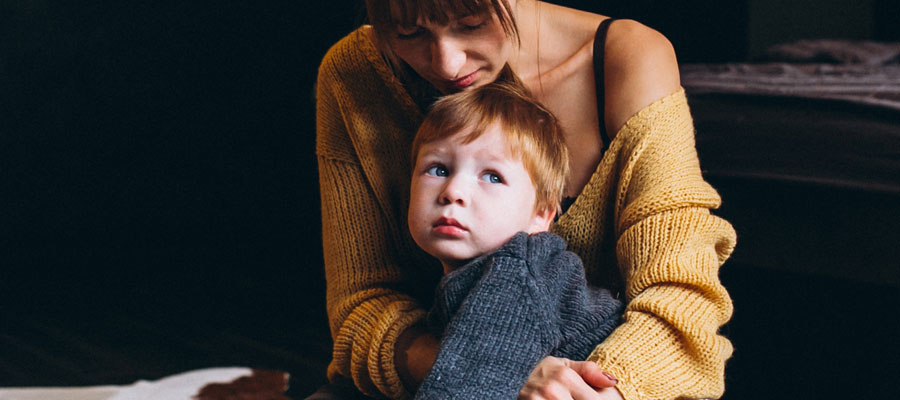Information
For Men
It can be difficult to honestly face up to the effect your behaviour is having on your partner and the rest of the family.

INTRODUCTION
It can be difficult to honestly face up to the effect your behaviour is having on your partner and the rest of the family.
You may be feeling bad, even guilty at times about your behaviour. However not doing anything about it will only make things worse for everybody concerned. You may also at times find yourself minimising, making excuses and pretending that things aren’t that bad. Your behaviour is not acceptable and it is having a damaging effect on your partner and children.
Joining a MOVE programme requires a lot of hard work and being honest with yourself. Change is possible with consistent effort and you can choose to stop abusive patterns of behaviour.
Who is the programme for?
ASK YOURSELF
- Does the pressure I am under impact on my partner or family?
- Have I ever scared my partner or family?
- Have I been putting my partner or family down or calling them names?
- Has my partner ever said they feel controlled, threatened or scared by me?
- Am I concerned with how my behaviour is impacting on my kids or family?
IF YOU HAVE ANSWERED YES TO ANY OF THE ABOVE QUESTIONS OR HURT YOUR PARTNER IN ANY OF THE FOLLOWING WAYS, THEN YOU SHOULD CONTACT US
Emotional Abuse:
threatening her, controlling who she sees, feeling jealous when she spends time away from you, making her feel bad, threatening to harm yourself in order to get your way, being silent, sulking, accusing her of seeing other men, blaming her when you act badly.
Psychological Abuse:
Trying to make her doubt herself, belittling her and humiliating her in public, not allowing her the space to think and decide for herself what is true. Showing disregard for her version of events and reality.
Verbal Abuse:
Shouting, raising your voice
Physical Abuse: pushing, hitting her, pulling her hair, slamming doors, punching walls.
Financial Abuse:
withholding money, deciding how she should spend her money, checking her accounts and questioning her financial decisions and actions.
Sexual Abuse:
pressurising her to have sex and to do things that she does not like, spiking her drink or ensuring she is drunk to agree to having sex with you, sulking or punishing her for not having sex when you want it
Post-separation Abuse:
continuing to try and control her behaviour, stalking activities, aggressive and frequent texts, phone calls, talking to your children about your partner in a very negative and abusive way, telling your children that their mother has forced you out of their life in a way that leaves them conflicted and worried about you. Your behaviour has serious effects on your partner and also on your children’s lives. You may not be able to see how your behaviour affects your family but your (ex) partner and your children can suffer emotionally as a result of your actions.
By attending our programme, you will become more aware of the impact of your behaviour. You may continue to choose this behaviour, but you will be aware that you have other choices.

IMPACT OF YOUR BEHAVIOUR ON YOUR PARTNER
Men who join our programme have said that they minimise the effect their behaviour has on their partner.
However, it is widely accepted that Domestic Violence has profound consequences for a woman’s physical and mental health. In some cases women have died from Domestic Violence.
You may already be aware that your partner could be tense or very anxious around you and may also have caused injuries to her such as black eyes, bruising and broken bones.
Behaviour such as this makes women feel vulnerable, stressed, hurt, worthless, scared and if you are honest with yourself you will be aware that your relationship with her is suffering badly and may be irreparably broken.
This behaviour is unacceptable. You may think that not physically violating your partner means that you are not abusive.
However the impact of controlling behaviour and emotional abuse, or shouting and slamming doors can all have an ongoing detrimental effect on the well being of your partner and children.

IMPACT OF YOUR BEHAVIOUR ON YOUR CHILDREN
Men have stated to us that their children were not aware of the arguing and fighting in the home. However, researchers have proven that children are very much aware of domestic abuse in the home.
Children are affected deeply by behaviour which occurs in the home. Children can be fearful, anxious, have low self-esteem and may have emotional problems as a result of living with Domestic Violence. Having to keep secrets, coping with divided loyalties, experiencing isolation are all extremely distressing things for a child to deal with no matter what their age. Children have also spoken about losing their childhood.
Below are some quotes from women and men interviewed about how domestic violence affected their children (Kelly and Westmarland, Project Mirabal, 2015)
“They would have been really, really confused. They would have been scared. They would have been angry. They would have been thinking what’s coming next, what’s gonna happen? There would have been a lot of that.”
“I don’t think they’ve ever felt safe, I don’t believe a child will ever feel safe in violence, but I think they get more relief when the arguments are over.”
“If he is looking up to me as a father figure then he sees me telling his mum to eff off he’ll think daddy does it that’s fine and that’s just not fine for a young child to watch and grow up like because that’s what he will end up doing ’cause he’ll think ‘that’s my great daddy so it’s alright for me to do it as well’ .”

WHAT YOU CAN EXPECT IF YOU WANT TO JOIN A GROUP
Firstly you will be treated without judgement and with respect.
You can contact us at any of the numbers on the contact page and an appointment will be made for an initial assessment. If you would prefer, you can fill out a referral form here. Our programme is provided free of charge.
Currently groups are run in the following areas:
- Cork
- Limerick
- Dublin (Tallaght and City Central)
- Galway
- Meath
- Louth
- Donegal Online
- Mid East Online
- South West Online
- North West Online
The assessment process usually takes place over two or three sessions and this will look at whether you are suitable for joining the programme. It is essential that you accept responsibility for your behaviour and demonstrate a real desire for change.
This is the first step towards changing your behaviour. If you are in denial about your behaviour, or justify it, or blame your partner, then you will not progress to the next stages of the programme.
The preparation for group includes writing or learning off an opening statement to introduce yourself to the other members and tell them why you are on the programme.
The group programme lasts 23 weeks and individual sessions are also offered alongside the group programme. Sessions usually take place in the evening and there are natural breaks to the sessions for holiday periods.
In busy areas, the programme is delivered on a rolling basis which means that you will not have to wait very long until you can join a group if you are suitable and if there is a space. In some areas the start and finishing dates are fixed and you may have to wait for some time.
In this time, you will be prepared for group work and you are expected to start the process of change while you wait for the group to start. A facilitator will work with you during this time.
In areas where it is not possible to run a group programme, individual sessions may be offered.
You will be required to participate fully in the sessions and attend all sessions unless you have a valid reason as to why you are unable to attend a session. Failure to participate fully and honestly or repeated non-attendance will result in you being asked to leave the group.
You will be given the opportunity to learn about the impact of your behaviour on your partner and children.
The programme will help you to develop new ways of coping and change how you think and behave towards women and children. You will be required to examine your beliefs and attitudes where they seem to condone poor and disrespectful behaviour towards women.
You will be learning mindfulness to support “time out” and emotional regulation, new communication skills and CBT, which requires you to look at your thinking and where it is leading you.
Your current or ex-partner will also be offered support in her own right. If you are not willing to give us your partners contact details, we will be unable to offer you a place on one of our programmes.
Attending this programme is about you recognising that you have been abusive. Attendance does not guarantee your partner will choose to stay with you, or that you will gain additional access time with your children. If these are your motives, then this programme is not for you. This programme is for men who realise that they have hurt others and want to change their behaviour.
Is the service confidential?
Our service is confidential but there are limits to this if we are concerned about your safety or your risk to others including children. If a service has referred you to us, we may be required to share information with them. We will be clear with you what information remains confidential and what is not.
You will be required to sign an agreement detailing when and why we will share information. We may also require your consent to obtain information from other services.
Our facilitators receive ongoing professional practice supervision in this work. They are filmed during the group work for this purpose.
Statements from Men Who have Participated in a MOVE Ireland Programme
““MOVE saved my life and marriage, helped me to see the man I had become and to understand why I act that way.”
PETER
“It has really affected positively - my thinking and reaction processes not only to my wife and family but others as well.”
Sean
“I have a completely different approach now. I can read myself and others better.”
Dermot
“MOVE helped me to develop new ways of thinking and coping with the challenges of parenting.”
Michael
